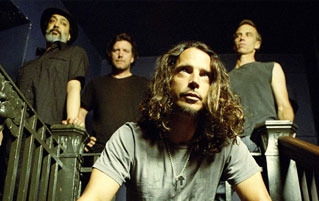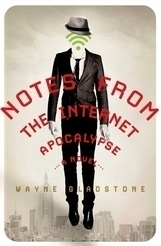The 5 Least Meaningful Songs People Mistake for Being Deep

Every once in a while a song comes along that countless adoring fans hold up as an example of deep complexity. Songs that provide profound insight into the mysteries of life or are worthy of mention as modern poetry classics. And, of course, very often, this praise is wrong, because rather than being some brilliant philosopher poet, the song has been written by some dude who joined a rock band to bang chicks and do a lot of blow.

That's not to say the songs on this list are bad or even that all of them have bad lyrics. Actually, I like all these songs. But it does mean that in all these cases, super fans have exalted these songs to a level of philosophical or literary heaviness that further scrutiny does not sustain.
"A Whiter Shade of Pale"
Here's a classic from the '60s that you will know from any and every movie made about the '60s. Also, it's sold over 10 million copies worldwide and is one of the top-selling songs of all time, so there's that. Still don't know it? OK, it's this.
For clarity, I'm a Procol Harum fan, and I love the song. Hell, I even like the lyrics for the most part, but it's on this list because its seeming literature-referencing ambiguity is responsible for attributing more to the song than what's there.
People See Big Things
You can understand people getting the wrong idea here, particularly because of the two big lyrics, "One of 16 vestal virgins," and "as the miller told his tale." It also doesn't hurt that the song is influenced by Bach's music. It just sounds like it should be important. And because it sounds important, people go looking for meaning, like this anonymous, arrogant twit who insists (wrongly) that the song is about a cocaine overdose. But most people, myself included, typically think the song references The Canterbury Tales because "The Miller's Tale" is the most famous part of that work. Bach, Chaucer, and a reference to Roman religion (vestal virgins) sure sound like heavy shit.

But the Song Is About So Much Less
Well, let's just go right to the lyricist, Keith Reid, who claims he was just trying to create a simple girl-leaves-boy story.:
"I had the phrase 'a whiter shade of pale,' that was the start, and I knew it was a song. It's like a jigsaw where you've got one piece, then you make up all the others to fit in. I was trying to conjure a mood as much as tell a straightforward, girl-leaves-boy story. With the ceiling flying away and room humming harder, I wanted to paint an image of a scene. I wasn't trying to be mysterious with those images, I wasn't trying to be evocative."
Oh, but what about the Canterbury Tales reference? Reid has said, "I'd never read The Miller's Tale in my life. Maybe that's something that I knew subconsciously, but it certainly wasn't a conscious idea for me to quote from Chaucer, no way." And lastly, while Romans did believe in the virgins of Vesta, the legend goes that there were six of them, not 16, so y'know, sometimes words are just fun! You don't get lit credit for almost referencing things of significance. If you did, songs about Shakespeare's Henry the 69th would be super heavy.
"Come Together"
In recent years, it's actually become quite fashionable to bash John Lennon, and why not? I mean, just because he's one of the greatest songwriters of all time, and was a man dedicated to peaceful causes and charity while on a constant search for self-improvement, that doesn't mean he shouldn't be viewed only as a man with an alleged history of substance abuse and domestic violence. After all, we all know people are either good or bad, and can all be summed simply in a few lines of Internet text. So choose sides, and vilify or canonize. Go!

Regardless of your stance on the man himself, "Come Together" has become an anthem for the '60s and is one of the Beatles' most recognized songs.
People See Big Things
I highly recommend you follow this link where countless Beatles fans tell you not only what these amorphous, silly lyrics could mean, but what they totally have to mean. People like to pretend that each verse is about one of the Beatles, and the fun thing is that you have fans swearing that same exact verses are about different Beatles. People say "he wear no shoe shine" could only be about George Harrison liking to be barefoot, and of course, "one and one and one is three" obviously means Paul McCartney is dead, leaving three living Beatles. Also the fact that the song is sung in English over a backbeat must mean that Lennon is referencing England's tyrannical colonization that beat upon people of foreign lands. OK, I made that up, but it's no less stupid.
But the Song Is About So Much Less
Basically, when Timothy Leary was endorsing drug use and embracing the counterculture, he asked Lennon to write a song for his California gubernatorial campaign. His campaign slogan was "Come Together, Join the Party." Lennon tried and failed to write a song, coming up with what Lennon himself called "gobblygook.":
"It's gobbledygook; Come Together was an expression that Leary had come up with for his attempt at being president or whatever he wanted to be, and he asked me to write a campaign song. I tried and tried, but I couldn't come up with one. But I came up with this, Come Together, which would've been no good to him - you couldn't have a campaign song like that, right?"
So yeah, Lennon's right, but don't let that stop you from seeing big things.
"Black Hole Sun"
Let's be clear: I love Chris Cornell. And not just because he's one of the greatest singers and songwriters in hard rock history, but because he's also a great lyricist. What's more, so often Cornell's lyrics seemed to transcend the mere negativity or knee-jerk rebellion of the grunge scene. While Kurt Cobain appeared on the cover of Rolling Stone with a homemade shirt reading "Corporate Magazines Still Suck," he still, y'know, posed on the cover of Rolling Stone.

Compare that to lyrics like Cornell's "The Day I Tried to Live" where he acknowledges explicitly the failure of his attempts to be different than "all the other pigs." But even though Cornell has written some heavy lyrics, "Black Hole Sun" is not an example of that. (Oh, also don't get me wrong, he's written crappy lyrics for Audioslave too).
People See Big Things
Maybe because Soundgarden did have some heavy, existential lyrics, or maybe because the grunge movement put forth some earnest words, or maybe because the video was so deep and trippy, people certainly went looking for more with this song. Probably the best example I can find is this person who speculates the song is a reflection on being examined by higher life forms. I personally thought I had some insight when the song came out, believing the line "no one sings like you anymore" was a reference to Cornell's friend Andrew Wood, the late former frontman of Mother Love Bone. But then again, I also thought I looked good in my imitation, Kmart Dr. Martens.
But the Song Is About So Much Less
Well, despite all that speculation, Cornell has been repeatedly adamant that these words mean nothing.
"It's just sort of a surreal dreamscape, a weird, play-with-the-title kind of song. ... Lyrically it's probably the closest to me just playing with words for words' sake, of anything I've written. I guess it worked for a lot of people who heard it, but I have no idea how you'd begin to take that one literally."
Oh, so little faith in humanity, Chris. People can do anything when they've got a keyboard, access to the Internet, and the ability to type up stupid theories.
"Levon"
Here's a great song from my favorite Elton John album. "Levon" tells the story of a family business and I guess seems straightforward enough, except that Elton John's lyricist, Bernie Taupin, included a whole bunch of lyrics that seem incredibly weighted. It's about a man named Levon. He has a son named Jesus. And apparently Levon is the son of a man named Alvin Tostig who was born on "a Christmas day when the New York Times said God is dead." There's a lot of stuff going on there. Incidentally, when Jon Bon Jovi covered the song on the Two Rooms album, he botched the lyrics. That's not really relevant, but I think it's important to remind people Jon Bon Jovi sucks.
People See Big Things
First of all, if your song mentions God and Jesus, it's a pretty safe assumption that people will go looking for religious imagery and biblical references. Also considering Levon is not a popular name, some wondered if the song referenced Levon Helm -- (drummer/singer for the Band). Even as a little boy I wondered if it were significant that "Levon" backwards was "Novel." And this intrepid reporter here is clearly working hard to try to find some meaning that must exist in the lyrics.

But the Song Is About So Much Less
Despite all this speculation, the pointed lyrics, and the grand musical accompaniment, none of these seemingly significant quirks are meant to be read into further. At least according to the man who wrote them. Taupin titled the song Levon because he liked the name. which by an amazing coincidence is the same reason the lyrics say Levon named his son Jesus -- because he just liked the name. Taupin rejects the references to Levon Helm, the actual Jesus, or anything beyond this being a story about an unfulfilling family business, saying, "It was a free-form writing. It was just lines that came out that were interesting." And sure that's fine, man. Go with your free-form. Do your thing, and I personally don't think songs have to mean something, but you're not fooling anyone, Bernie. You do not name a character Jesus and quote Nietzsche in a song ("God is dead") if you don't want to fool people into thinking you're laying down some heavy shit. "Oh, my song 'Mohammed Moves Mountains Because Hell Is Other People?' No, no, just words!"
"Stairway to Heaven"
"Stairway to Heaven" is arguably the greatest classic rock song of all time. Everything about it is epic in the true sense of the word. It's long, it has strings, it crescendos to great heights, and, of course, it's filled with ethereal grandiose lyrics. If you've never heard the song, then, wait, what? Really? No, seriously?
People See Big Things
Sure they do. It's got heaven in it, and as you'll notice from this list, anything dealing with death or religion really sets off classic rock listeners. You could have a five-minute polka about a horny cow, but if the chorus was "Moo-ing my love to the heavens," someone somewhere would write a biblical/bovine treatise.

I've never really heard of a coherent, consistent interpretation of this song. Instead people just kind of like to let their insights wander, like in this article. But there is one fun theory about the song: It was written by Satan, himself. Y'see, Robert Plant says the lyrics came quickly in a flash and apparently, some have interpreted that to mean that Satan was dictating because, y'know, it must be hard for him to type himself with those long fingernails. And of course, Jimmy Page was into witchcraft and the occult, so sure, the song is some sort of Satanic poem.
But the Song Is About So Much Less
If you've ever tried to listen to Plant describe his lyrics, you know it's like listening to Kirk Cameron explain evolution. So what does the song mean? Well as usual, "Stairway to Heaven" sees Plant poaching from Tolkien because what else is he supposed to do? Not write songs about orcs? I dunno, maybe he's referencing Gandalf with the "rings of smoke" line, but what does it actually mean? Well, Plant has denied any satanic involvement and explained the song as a mere "abstraction," adding: "Depending on what day it is, I still interpret the song a different way."
But then again, isn't that exactly what Satan's willing servant would say?!

GLADSTONE'S NOTES FROM THE INTERNET APOCALYPSE IS ON SALE NOW!
Be sure to follow Gladstone on Twitter.
For more from Gladstone on Cracked, check out 4 Kinds of Lyrics That (Almost) Always Ruin the Song and 5 Covers That Improved the Lyrics of Famous Songs.
Reports on the Internet Apocalypse, the third book in Gladstone's Internet Apocalypse Trilogy, is available now!

